mailus@npsjayanagar.com
Academic and Scholastic
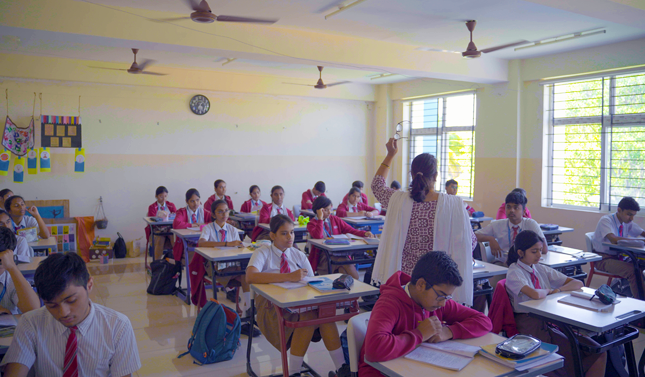
Scholastic
The curriculum at NPS Jayanagar is so designed as to inspire the students to acquire and use knowledge and skills needed to succeed in an ever changing, competitive environment that places intellectual and emotional quotient at par.
The 5+3+3+4 Curricular and Pedagogical structure of school education is reflected in the learning standards, the content, the pedagogy, and the assessment approaches.
The curriculum for the four stages of schooling has been designed based on the vision of NEP and on the considerations of child development, conceptual development, and the appropriate modes of inquiry at each age range.
Foundation Stage (3-7 Years)
Children start schooling in the Foundational Stage.
Curricular Structure:The Foundational Stage curriculum is divided into domains that are closely linked to the developmental domains of the child – physical development, socio-emotional-ethical development, cognitive development, language and literacy development, and aesthetic and cultural development..
Content:Textbooks are used along with toys, puzzles, and manipulatives. Along with these materials, learning experience organized through physical exploration of the classroom and outdoor space becomes the most appropriate content. Worksheets and children’s literature are very important source of content for language and literacy development.
Pedagogy:The pedagogical approach suggested is play based and emphasizes the nurturing caring relationships between the teacher and the children. The pedagogical design allows for self-paced individual learning.
Assessments:Most assessments are observations made by teachers and not explicit testing the ability of students. Worksheets used by children can give information to teachers about the progress in learning. Classroom Arrangement: Children of this age group are allowed to move freely and have adequate opportunities for engaging their natural curiosity and exploration.
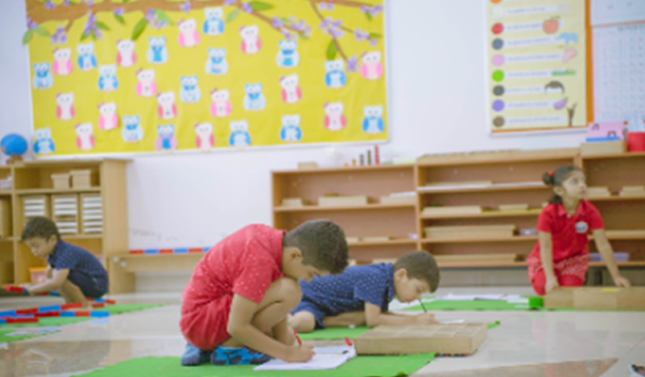
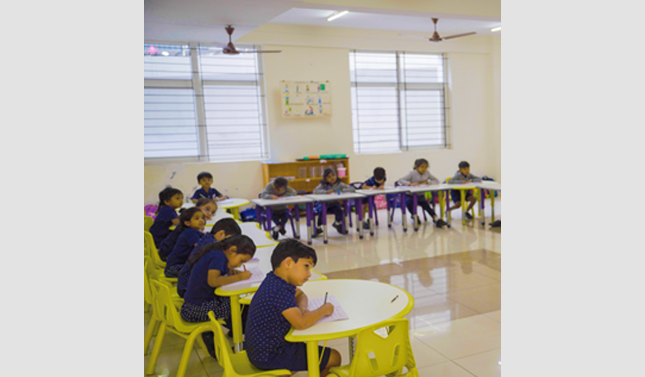
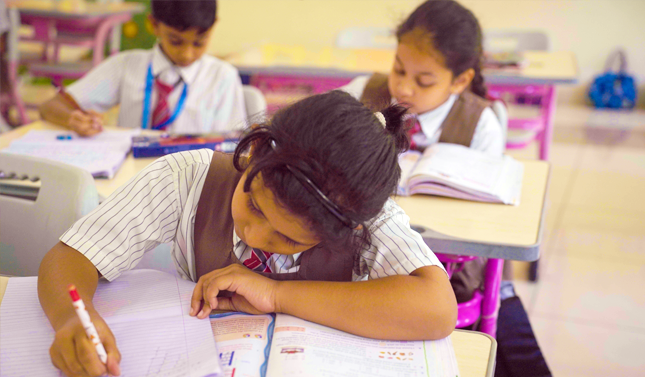
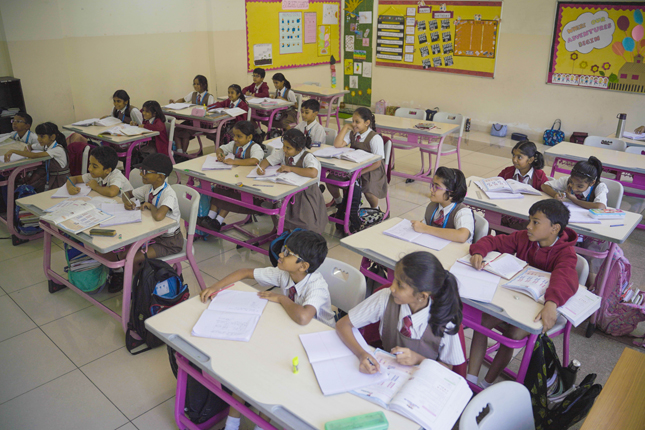
Preparatory Stage (Grades III - V)
The Preparatory Stage curriculum is divided into the following curricular areas – languages, mathematics, arts, physical education, and the Environmental Science. Interdisciplinary, explorative activities and project-based learning is encouraged.
Content:
Textbooks of languages, mathematics and environmental science that aligns with the curriculum specified by CBSE are used for conducting the teaching learning process.
Pedagogy:
The pedagogy continues to be activity-based and discovery-based, encouraging students to be active within a formal classroom arrangement.
Assessments:
Assessments in this stage is a combination of observation of students’ activity, submission of written work, and periodic summative assessments.
Classroom Arrangement:
The classroom setting is a balance between a formal environment and an arrangement that encourages movement and exploration.
Middle Stage (Grades VI-VIII)
Curricular Structure:
The Middle Stage expands the curricular areas to include the Sciences –and Social Sciences including Languages and Mathematics. Students get exposure to Vocational Education.
Content:
The content in the Middle Stage needs to reflect the engagement with theoretical concepts and the introduction of theories and conceptual frameworks specific to each form of understanding. There is a shift to more abstract ideas and the students are expected to engage with unfamiliar contexts and situations. Well-designed textbooks with clear expectations and specific learning goals aligned with the directives of CBSE are used.
Pedagogy:
Pedagogy is a judicious balance of direct instruction and opportunities for exploration and inquiry. The focus on concept development.
Assessments:
Assessments can become more formal and explicit. Formal tests and examinations play a role with the expectation that students can process larger chunks of information together for analysis and synthesis.
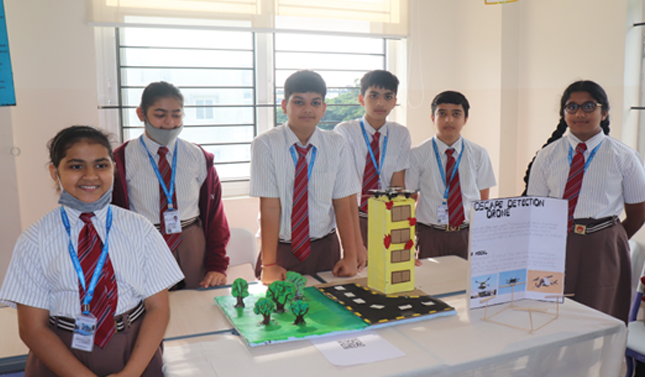
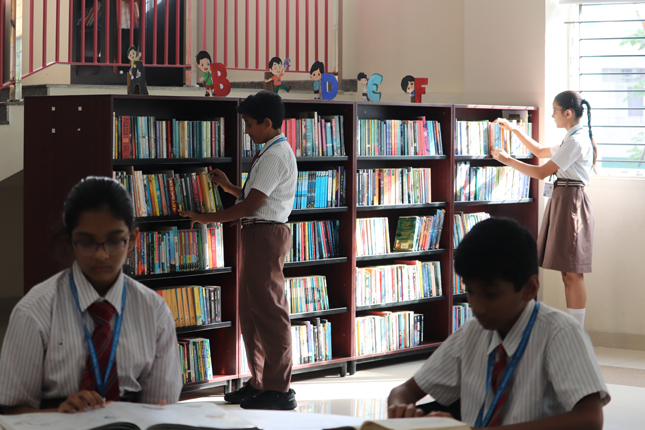
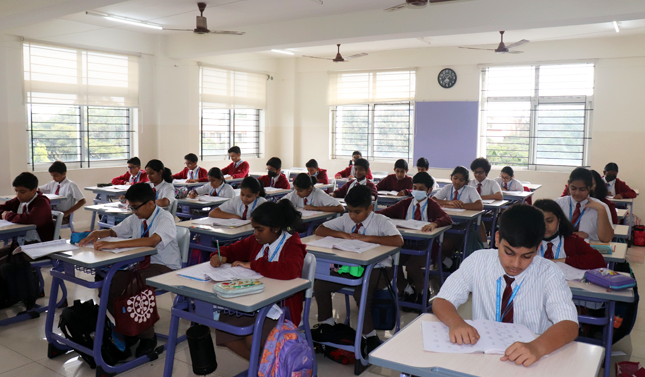
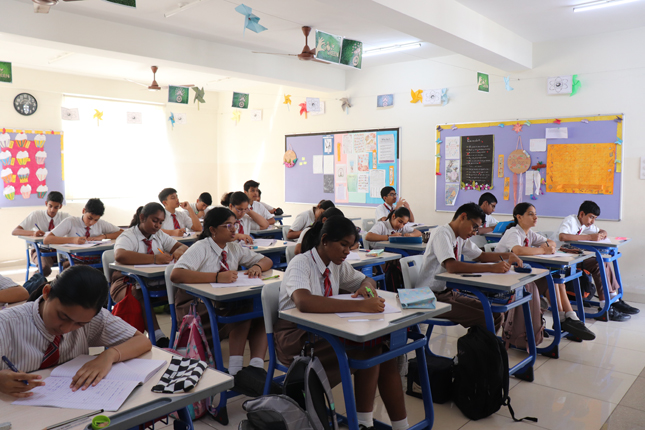
Secondary Stage (Grades IX - XII)
It consists of four years of multidisciplinary study, during which students will be offered a range of courses including:
-
Essential courses which all students must take.
-
Choice-based courses – Science/Commerce. In classes 11 and 12, Science stream, electives offered are Biology/Computer Science/Economics.
-
Vocational education, arts, and sports will be an integral part of the curriculum.
-
Greater breadth will be enabled by the essential courses that all students will take, while greater depth will be enabled through courses based on student choice.
-
Students will receive greater attention to their personal and career aspirations as they ready themselves for work or higher education.
The Secondary Stage will be divided into two phases:
-
Broad Curricular Areas (e.g., Science, Social Science, Humanities) will be offered in Grades 9 and 10 to enable breadth. Learning Standards are defined for this phase, and it is expected that all students attain these learning standards.
-
Disciplines within each Curricular Area will be offered in Grades 11 and 12 to enable depth.

